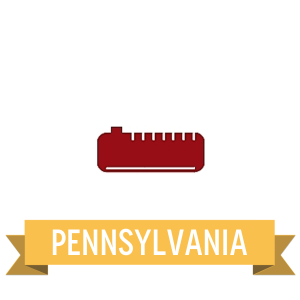
This course has been reviewed and approved by the Washington, D.C. Department of Energy & Environment (DOEE).
Successfully completing this training will award a certificate which grants UST Class A/B operator certification in the District of Columbia.
Course level: Advanced
Access duration: 1 year
Applicable to: District of Columbia
This training course covers the following information:
Module 1: UST Operator Training Requirements
- State UST program requirements
- UST Class A, B, and C operator responsibilities and training requirements
- Facility and training record requirements
Module 2: Underground Storage Tanks
- What an underground storage tank (UST) is
- What tanks qualify as USTs
- Common tank construction materials
- Product compatibility
- Compatibility test methods
- Tank venting
- Secondary containment
- Sumps
Module 3: Spill and Overfill Prevention
- Why spill prevention is important
- Correct UST filling practices
- Spill prevention equipment
- Spill buckets
- Spill prevention requirements
- Spill prevention inspections
- Overfill protection devices
- Automatic shutoff devices
- Overfill alarms
- Ball float valves
- Overfill prevention requirements
Module 4: Release Detection
- Why release detection is important
- Secondary containment with interstitial monitoring
- Interstitial monitoring devices
- Manual tank gauging
- Tank tightness test
- Automatic tank gauging (ATG) systems
- ATG regulatory requirements
- ATG leak tests that must be performed monthly
- Vapor monitoring systems
- Groundwater monitoring
- Statistical Inventory Reconciliation (SIR)
- Under-dispenser containment (UDC)
- Release detection requirements
- Spill detection inspections
Module 5: Corrosion Control
- Corrosion protection requirements
- Cathodic protection
- Cathodic protection testing and recordkeeping
- Interior lining
Module 6: UST Financial Requirements
- Who is responsible for demonstrating financial responsibility
- What tanks are not covered by the financial responsibility requirements
- How to demonstrate financial responsibility
- UST financial responsibility categories
- Financial responsibility for different sets of tanks
- Required dollar amount of financial responsibility
- The required scope of coverage
- General recordkeeping/reporting requirements
- When is coverage no longer necessary
Module 7: Temporary and Permanent Tank Closure
- Delivery prohibition programs
- Closing a tank temporarily
- Closing a tank permanently
Module 8: Emergency Response
- UST release response
- What constitutes a suspected release
- How to determine if a suspected release is an actual release
- Spill/leak short-term actions
- Spill/leak long-term actions
- Facility map and equipment layout
- Spill containment materials
- Basic steps to follow when responding to a petroleum spill
- Small scale response plan
- Washing down spills
- Spills reaching water
- Large spills
- Additional information resources.
Module 9: Recordkeeping and Reporting
- Why recordkeeping is important
- Where records should be kept
- Recordkeeping requirements for:
- Spill and overfill prevention records
- Corrosion prevention records
- Release detection records
- Walkthrough inspection records
- Compatibility records
- Operator training records
- Repair records
- Financial responsibility records
- Closure records
Media included:






